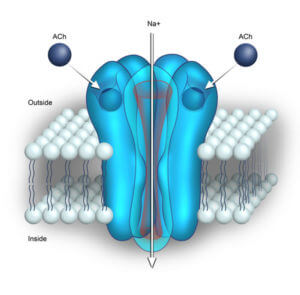But that doesn’t necessarily mean we are powerless to change our genetic fortunes. New schizophrenia research suggests that infants who are genetically predisposed to develop the disease could be helped through supplements given to expectant mothers.
This isn’t the first time researchers have suggested that supplements could reduce the risk of disease. In order to prevent neural tube defects in infants, expecting mothers often are urged to take folate (folic acid, vitamin B9) supplements. The research is mostly stacked in favor of its benefits for several conditions, though like anything, there are some conflicting findings.
Schizophrenia is defined by the National Institute of Mental Health as “a chronic and severe mental disorder that affects how a person thinks, feels, and behaves. People with schizophrenia may seem like they have lost touch with reality.” It is often supremely debilitating, and a huge drag on the resources of families and caregivers. Some research by Randy Ross, M.D., professor of psychiatry at the University of Colorado Denver School of Medicine and colleagues has found that a gene coding for nicotinic acetylcholine receptors, CHRNA7, when switched on, is associated with the development and progression of schizophrenia. Another interesting finding, albeit perhaps coincidental, is that this receptor is involved to some degree in processing nicotine, and schizophrenics tend to have a high degree of smoking behavior.

How this receptor system innervates the brain seems to be just prior to birth (at least in rodent models, which have been well-characterized). But the researchers found that even before the full innervation of this nicotinic acetylcholine receptor system, it plays a developmental role in the brain during gestation. Choline, which is found in the amniotic fluid, activates the receptor to produce effects, most of which are unknown at the moment.
Abnormalities in the regulation of choline are also found in patients with schizophrenia, and so connecting these dots provides some substantiation of the linkage. After first testing this nutrient with rodents, the researchers applied to the FDA to allow human testing, and they report:
“We’ve completed the first randomized, placebo-controlled study, and it turned out that, very much as we predicted, if we supplemented choline during gestation, babies were born that electrophysiologically appeared to be at lower risk for schizophrenia. Specifically, we found that supplemented infants exhibited greater degrees of inhibition, meaning that their brains gradually stop responding to subsequent presentations of the same tone; impaired inhibition is a risk factor for schizophrenia.”
What this last statement refers to is that schizophrenics often have problems separating out environmental ‘signal’ from ‘noise,’ and so this measure is a test of potential weakness in this ability. The scientists found further evidence:
“We also did a follow-up study 4 years out showing that supplemented children have a significantly lower degree of attention and behavioral problems as well as social isolation, which are predictors of future schizophrenia.”
How do we get choline?
Foods such as eggs, red meats, and organ meat such as liver are very high in choline. In the researchers’ study, the placebo group was encouraged to consume a diet rich in choline, but ‘diet’ wasn’t as strong or reliable in producing the changes that supplementation was. This is the same sort of finding as in the folic acid supplementation studies of years ago.
Any further research on this?
The hypothesis is relatively strong, as are orthogonal lines of inductive evidence, but only further study will show differences over time. The researchers note, ideally, “we would follow these children for another 20 or 25 years to see whether and how many develop schizophrenia, and that’s of course beyond the scope of most imaginable experiments. On the other hand, not to make these data public at this point means that 25 years go by, and we have many babies who will eventually develop a mental illness. By continuing to study the effects of choline, perhaps we’ll be able to prevent this [schizophrenia].”
A version of this story previously appeared on the GLP on January 4, 2017.
Ben Locwin is a behavioral neuroscientist and astrophysicist with a masters in business, and a researcher on the genetics of human disease. BIO. Follow him on Twitter @BenLocwin































